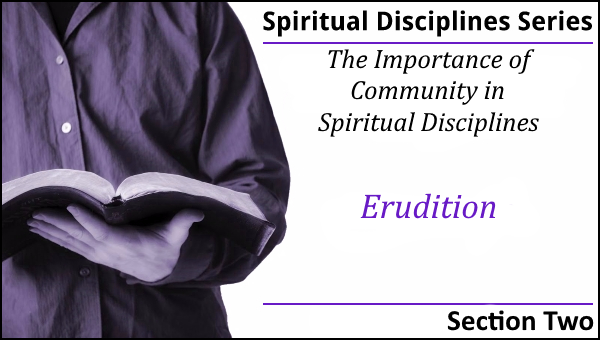By Tyson Thorne

The summer between my junior and senior year of college I took a Greek reading course – a one-on-one class between a professor and myself. On day one he stated we would translate an entire book of the New Testament and I got to choose the book. When I selected Ephesians, he smiled like the cat that ate the canary, which worried me. My first assignment was to come back to the next class having translated chapter one, which proved a very difficult feat. What he knew, and I learned, is that the apostle Paul has a propensity toward run-on sentences. In fact, all of chapter one is a single sentence!
I learned a lot in a short time. I learned more about the Greek language, I learned a better understanding of the text, and I learned a characteristic regarding the writing style of the New Testament’s most prolific writer. Things I never would have learned from an English translation. While I wouldn’t recommend everybody learn first century Greek, it illustrates an important truth that Paul makes in another of his letters, that Christians need to keep learning.
“For this reason we also, from the day we heard about you, have not ceased praying for you and asking God to fill you with the knowledge of his will in all spiritual wisdom and understanding, so that you may live worthily of the Lord and please him in all respects – bearing fruit in every good deed, growing in the knowledge of God, being strengthened with all power according to his glorious might for the display of all patience and steadfastness, joyfully giving thanks to the Father who has qualified you to share in the saints’ inheritance in the light” (Colossians 1.9-12, emphasis mine).
In this single (run-on) sentence he tells us four areas a believer should expand his knowledge: God’s will, spiritual wisdom, spiritual understanding, and knowledge of God. We can learn these truths on our own, but not completely. As we mentioned previously, Christianity is not meant to be practiced alone. We need the knowledge, wisdom and gifts of other believers to come to a greater and correct knowledge of God and spiritual things. The best place for that to happen is in community, the church, ekklesia in Greek.
The early church followed the Jewish tradition of Solo Scriptura, that is Scripture alone. They would read a section of God’s Word, explain it, then mark where they left off and continue the next week. During the middle ages the Catholic church veered from this practice, as they wanted to emphasize some passages and not preach others. This is partly what lead to the Reformation, but even with the renewed emphasis on reading the whole of the Bible the church has not returned to this pragmatic approach to study.
For this reason some complain that they are not learning anything new when attending the weekly worship service. This is no excuse for ending church attendance; instead, it is a reason to become more involved. The modern church offers opportunities not available to believer’s in the first century. We have Sunday school classes and mid-week Bible studies, as well as conferences and workshops. There area also books and the Internet offering us insights, wisdom and knowledge beyond what we could attain on our own. As we learn, we are expected to share that knowledge with others in community.
|
|